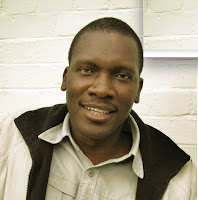By Jose De Marco and Stephen J LeBlanc
(Members of the Board of Directors, The AIDS Policy Project)
Just three years ago, everyone thought a cure was a distant dream.
But the case of the Berlin Patient, cured of AIDS in 2007 and HIV-free today, has inspired new research in laboratories from San Francisco to Melbourne, Australia. An activist campaign is calling for $240 million for AIDS cure research at the NIH, funded with money from a department that is being shut down. People affected by HIV are becoming aware of the possibilities. A recent poll by the National Minority AIDS Council showed that fixing ADAP and an AIDS cure were the top two policy priorities of its constituents.
But you won't find anyone talking about a cure at AIDSWatch, the annual lobby event organized by the National Association of People with AIDS. Starting February 16th, it promises to advocate for "the most crucial issues facing the 1.3 million people living with HIV/AIDS in the United States." A cure is not on their list.
Four hundred people with AIDS and their allies will fan out across Capitol Hill to talk about the need for AIDS funding with their legislators. But despite letters of support from organizations of people with AIDS ranging from ACT UP Philadelphia to the National Minority AIDS Council, NAPWA has declined to include AIDS cure research on the agenda for discussion or for lobbying. Their agenda is set, they say. According to one organizer, there is no time for a speaker to discuss AIDS research, let alone the cure. He told us there will be no specific dollar requests in the lobby visits. Otherwise, volunteer lobbyists would suffer from "information overload."
Funding for the National Institutes of Health has been stagnant since 2003. The NIH's main AIDS research division, NIAID, must reject funding for 77% of the AIDS research grant applications it receives because there is no money to pay for more.
Worse, the NIH spends only 3% of its AIDS research budget trying to find a cure for AIDS. Three percent. There is no commitment yet to increase this funding, even as the entire field has been reinvigorated and exciting research is being proposed in labs all over the world.
Only 5 million of the 33 million people with HIV worldwide currently have access to AIDS meds. Only 1/3 of the very sick receive them. In 2009, nearly 2 million people died this way.
We need a cure.
Congressional briefings, paid lobbyists, and advocacy reports have not, so far been enough to increase federal funding for the NIH, let alone AIDS cure research. With Congress trying to cut spending back to 2008 levels and some members of Congress trying to de-fund the US Agency for International Development (and therefore US-funded global AIDS treatment), what else can we do? What could work?
Hundreds of thousands of people care about AIDS in this country. We need to leverage their voices to loudly, publicly, and specifically call for more AIDS funding--for the ADAP, for housing, for the NIH, and for a cure. This movement requires the grassroots power of people with AIDS. Expertise is essential--but expertise without political power cannot get the goods.
NAPWA must reverse its mistake and include AIDS cure research, and indeed overall NIH funding on its agenda for policy briefing and lobbying on February 16th-18th. Research advocates want to share what they know with the hundreds of people with AIDS making the trip to Washington from states across the US. We want them to talk to their representatives in Congress about AIDS cure research, and the need for more NIH funding. The fact that there are promising research avenues for a cure for AIDS that remain starved for funding will come as news to nearly all of them.
AIDSWatch is the only national AIDS lobby day we have. It is a critical chance for people with AIDS and their allies to push for funding and educate Congress about the issues. Including progress toward a cure.
The NIH, despite its meager financial commitment, is still the leading funder for cure research worldwide. AIDS research is a global issue. What happens at AIDSWatch affects the world, but the world doesn't have a say in what is on the agenda at AIDSWatch.
Political power, including focused grassroots power, is critically needed to move funding for an AIDS cure forward. Hundreds of people coming to Washington in two weeks can help--if they get the chance.
APP on:
On the Web 




